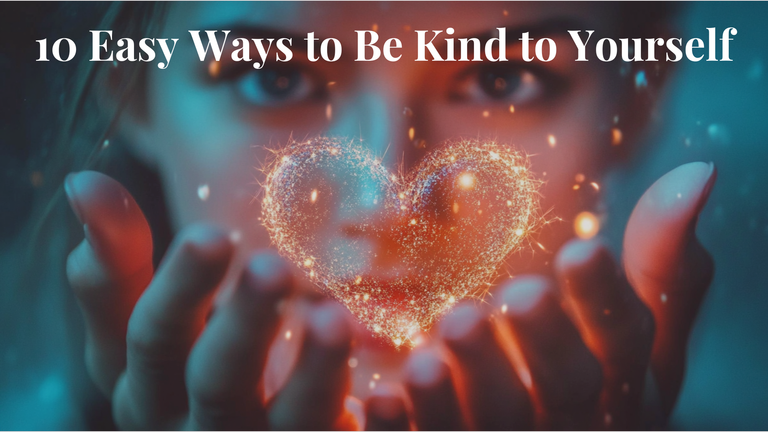Why Self Kindness Is Important

*Sources used are cited in the text.
We often compare ourselves to others and can be hard on ourselves. It's easy to get lost in the rush of life. Being kind to ourselves means treating yourself with the same love and care you would offer a good friend. It is important for balance and to maintain a healthy body and mind. It helps to reduce stress and anxiety, builds strength and resilience, and can lead to a happier, healthier life. That sounds good, but what exactly is self-kindness?
What Is Self-Kindness?
Self-kindness means acknowledging our struggles without judging ourselves and responding to our needs with care. Rather than being hard on ourselves, we should use a gentler, more supportive inner voice. Dr. Kristin Neff, a leader in self-compassion research, states that self-kindness is one of the three main parts of self-compassion, along with mindfulness and common humanity. Being kind to ourselves helps us realize that everyone makes mistakes and faces challenges, we are not alone. By being kind to ourselves, we strengthen our emotions and improve well-being.
Psychological, Emotional, & Physical Benefits
Research shows that being kind and compassionate to ourselves can reduce anxiety and depression and create a more positive mindset. It can also help us recover from setbacks faster and build resilience. Emotionally, self-kindness promotes self-acceptance and peace, it can quiet the inner critic that sometimes causes stress.
Physically, it can lower stress-related symptoms such as high blood pressure and tension. Embracing self-kindness builds a healthier relationship with ourselves, leading to a happier, more balanced, and fulfilling life.
Misconceptions
Some people believe being kind to yourself is lazy or indulgent. This isn't true! Self-kindness is a healthy way to care for yourself. It involves recognizing limits, setting boundaries, and addressing needs without neglecting responsibilities.
Self-Kindness vs. Self-Indulgence: Self-kindness supports long-term wellness, self-indulgence focuses on short-term comfort, that can lead to negative consequences.
Self-Criticism: Self-criticism may be seen as a way to motivate ourselves to improve; but research shows it can be harmful. Constant self-criticism can lead to feeling like a failure, stress, and low motivation. Self-compassion helps us learn from our mistakes and stay motivated in a healthier way.
By treating ourselves with kindness, we are more likely to grow, be productive, and maintain our well-being.
Greater Good, UW Medicine Faculty
The Benefits of Self-Kindness
Mental and Emotional Health: **Being kind to ourselves can enhance our mental and emotional well-being. It can also reduce stress, anxiety, and depression. When we practice self-kindness, we replace negative thoughts with understanding, making our minds calmer and more resilient. This can help us manage difficult emotions and recover from challenges faster.
Physical Health Improvements: Mindfulness and light exercise can reduce stress, strengthen our immune system, improve sleep, and increase energy. Taking care of our bodies can lead to better health, lower the risk of illness, and help us to recover from stress.
Better Relationships: Kindness toward oneself improves relationships. When we are kind to ourselves, we become more understanding and patient in our interactions with other people. By treating ourselves well, we can also show kindness and support to others. This enhances communication and strengthens connections.

10 Easy Ways to Be Kind to Yourself
- Replace negative thoughts with affirmations of self-worth.
- Learn to say no when needed to protect your emotional energy.
- Schedule breaks to recharge and avoid burnout.
- Recognize and appreciate daily achievements, no matter how small.
- Engage in light exercise to relieve stress and improve your mood.
- Be mindful to stay present and encourage self-acceptance.
- Forgive your past mistakes and be kind to yourself to grow.
- Enjoy simple pleasures, like a favorite meal or hobby, to boost your mood.
- Write down things you appreciate about yourself each day.
- Limit the time you spend comparing yourself to others online.
Sources used are cited in the text.
- Images created in Midjourney (I have a commercial license).